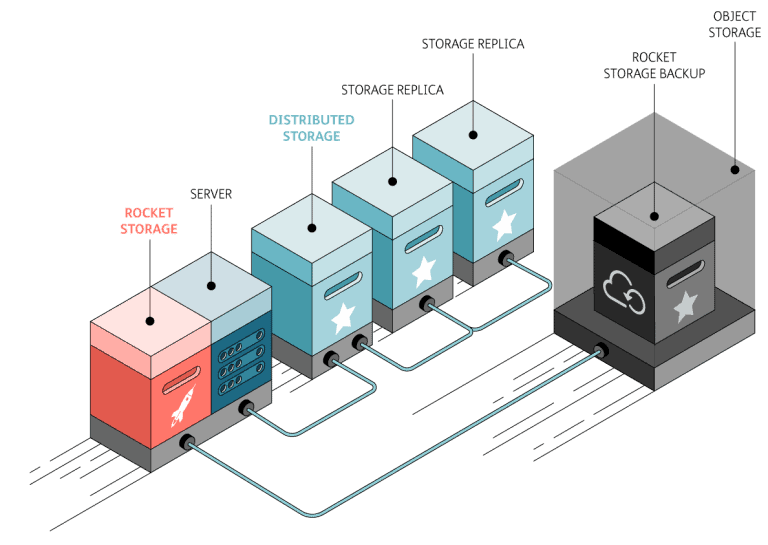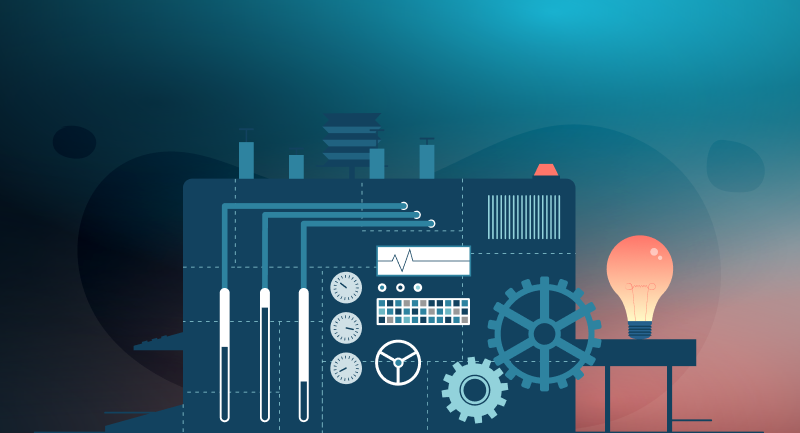The Machine Room
In the “News from the machine room” article series, we regularly post content detailing exciting new products and relevant updates to our wide range of offerings. Would you like to try out for yourself what we write about here? Simply create a free account.
LBaaS
We’ve overhauled the underlying architecture of our LBaaS offering, improving Load Balancer reliability as well as stability. The load balancer infrastructure now runs on dedicated resources. After considering several proxy technologies currently available, we finalized HAProxy as our choice. There were a few close contenders while considering the options but we needed one that didn’t change anything from the user’s perspective, to ensure a seamless overhaul. These updates to the architecture offer significant improvements, such as greatly increasing the requests per second while halving the latency – all at the same price!
In addition to this, we’ve also released the option to add multiple hostnames/domains for which we will generate the SSL certificates. Despite the success of Let’s Encrypt and the ACME protocol, there are still cases in which customers want to bring their own certificates. We’ve listened to that and in the near future we’re planning on offering exactly this option for our LBaaS. Furthermore, a feature that was frequently requested is the option to perform custom health checks for backend servers. Aside from our mainline LBaaS these features will also find their way into our Managed Kubernetes offering (GSK).
Rocket Storage (Labs)
We’ve developed the Rocket Storage offering for applications which require high I/O performance and ultra-low latency such as Databases.

Our new Rocket Storage is globally available to all customers within the Panel as a Labs feature. Partners have the option to offer Rocket Storage to their tenants via Feature Flags.
Currently our Rocket Storage is based on high performance NVMe-based storage solutions and offers low latencies boasting blazing fast IOPS. During the Labs phase certain features such as the Snapshot Scheduler are not available. Storage size is limited to 500GB which we’ve already raised from 100GB due to customer requests during the Labs phase. Backups are fully supported as well. We’ll be adding more support in the coming months, and we’re eagerly looking forward to hearing your feedback!
Panels
As part of our constant pursuit to improve user experience, we’ve changed up the resource limits overview, making it easier to understand your actual usage and resource availability.
While deleting a server, you now have the option within the dialog box to delete objects that are related to the server making it easier to clean up running resources. This enables you to perform tasks with just a single step, as opposed to the earlier requirement of multiple interfaces and requests!
Github Ecosystem
gridscale’s in-house tools and libraries, intended to optimize and simplify workflows, saw several updates during the past month.
Our Go-based gridscale API client, gsclient-go facilitates an application to interact with the gridscale Cloud Platform and allows you to create and manage resources. Updates involved improved documentation and schema fixes for Storage Backups and Marketplace Applications.
Our Terraform Provider updates involved default inbound firewall rules being applied and fixes for turning off a server that is already shut down. We’ve also streamlined the package release process. The provider also supports the aforementioned gsclient-go package and its associated feature updates. If you’re interested in exploring examples for Terraform you can visit this link.
We’ve been using a Packer integration for a long time, which we’re now working on upstreaming. We’re upstreaming this to assist with programmatic interaction with applications on gridscale, for things like our marketplace, or just your own custom templates.
The official command line interface for the gridscale API, gscloud, now supports basic IP Address operations, storage resizing and template deletion.
More from the Machine Room
Machine Room June 2023
Even though it’s getting warmer outside, we’re still working hard to make your gridscale experience…
